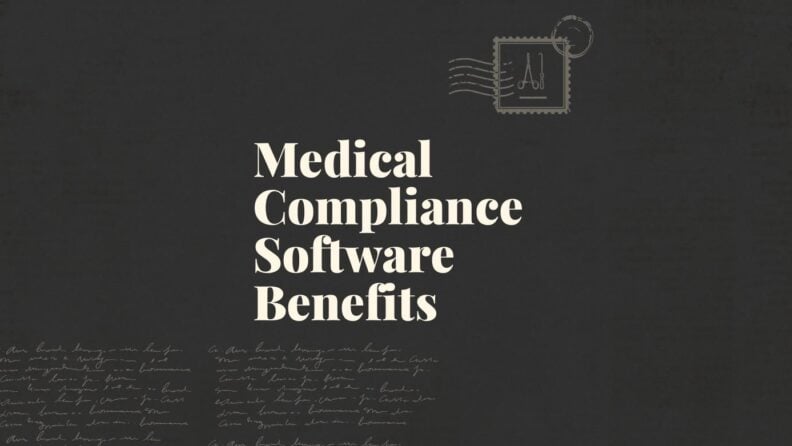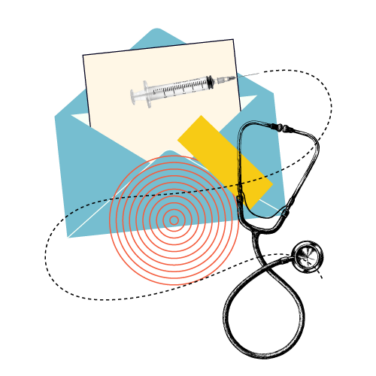Medical compliance software simplifies navigating complex healthcare regulations, featuring automated alerts and audit trails to ensure your practice adheres to necessary standards without stress.
With automated tracking and reporting, compliance software significantly reduces legal risks and potential fines, allowing healthcare teams to focus more on patient care and less on paperwork.
Efficient reporting tools help save time and reduce errors, enabling healthcare practices to make informed decisions quickly while improving operational transparency and accountability.
Enhanced data security features protect sensitive patient information through role-based access and encryption, mitigating risks of data breaches and preserving trust in your practice.
Automating documentation processes with compliance software reduces manual tasks and errors, ensuring accurate patient records and improving the operational integrity of your medical practice.
If you're managing a medical practice, you know the constant challenge of keeping up with the changing healthcare regulations and standards. Implementing medical compliance software could be the solution you've been searching for to alleviate some of these headaches.
This type of software can help you and your team stay compliant with ease, saving time and reducing the risk of costly errors. You might be wondering about the return on investment, but think about the peace of mind in knowing your practice is following all necessary guidelines. Plus, the right tools can free up your time to focus on what truly matters, providing exceptional care to your patients.
Let’s explore how these tools can make a difference in your day-to-day operations.
What Are the Benefits of Medical Compliance Software?
Medical compliance software helps healthcare organizations adhere to regulations and standards, ensuring they stay in line with legal and ethical guidelines. These tools support you and your team by automating tasks like documentation, reporting, and auditing, which can save time and reduce errors.
With medical compliance software, you can manage compliance more efficiently, making tracking and reporting necessary activities easier. This helps avoid fines and penalties and improves the quality of care provided to patients.
Now that we're all on the same page about what medical compliance software benefits are, let's get to the benefits you can expect when you implement these solutions!
1. Ensures Regulatory Adherence
With medical compliance software, you can navigate the complexities of healthcare regulations with ease. These tools come equipped with features like automated alerts for regulation updates, comprehensive audit trails, and secure data management, all designed to keep you in line with the latest standards.
The challenges of staying compliant, such as managing vast amounts of sensitive data and ensuring all practices meet legal standards, become manageable tasks with these solutions. When your practice adheres to regulations consistently, it minimizes the risk of costly fines and legal issues, directly impacting your bottom line.
Moreover, by ensuring regulatory adherence, you build trust with patients and stakeholders, boosting your reputation and potentially increasing patient retention and staff morale.
2. Reduces Risk of Non-Compliance
Medical compliance software offers features like automated tracking and reporting, ensuring your practice stays updated with changing compliance standards. You can say goodbye to the tedious manual audits and hello to a system that flags potential compliance issues before they escalate.
This software manages regulatory requirements and minimizes legal risks and potential fines, safeguarding your practice’s financial health.
Your team will appreciate the reduced stress, and leadership will value the enhanced protection against non-compliance pitfalls. By automating compliance checks, you free up time and resources, ultimately boosting your practice's efficiency and reputation.
3. Facilitates Efficient Reporting
Medical compliance software offers several features that help you and your team with efficient reporting. These tools often include built-in templates and customizable reports that cover various metrics such as patient demographics, compliance tracking, and resource utilization.
Such capabilities address data redundancy and manual report generation, saving you time and reducing errors. Efficient reporting also translates to a clear business impact. When your reporting is streamlined, it not only saves time but also helps in making informed decisions quickly.
This leads to better allocation of resources, improved compliance with regulations, and more transparency and accountability, enhancing the overall trust and operational efficiency.
4. Enhances Data Security
Medical compliance software has key features that bolster data security, such as role-based access controls and encryption. These tools ensure that only authorized personnel can access sensitive patient information, addressing the critical need to protect patient privacy and comply with regulations like HIPAA.
As a medical practice manager, you face the challenge of safeguarding data while maintaining efficient operations. Enhanced data security features in compliance software help mitigate risks of data breaches, which can lead to costly fines and loss of trust.
By investing in these capabilities, your team can reduce the likelihood of incidents that could disrupt operations or damage your practice's reputation. Enhancing data security not only protects patient information but also supports your practice's integrity and financial stability.
5. Improves Audit Preparedness
Medical compliance software is a key ally in ensuring you're ready for audits. These tools offer features like automated record-keeping and real-time reporting, essential for maintaining up-to-date documentation. With compliance tracking, you can ensure all procedures align with current regulations, reducing the risk of non-compliance.
This software keeps comprehensive records without the manual hassle, minimizes errors, improves efficiency, reduces potential fines, and enhances your practice's credibility.
6. Streamlines Documentation Processes
When you're juggling numerous tasks, medical compliance software can be a lifesaver by automating several documentation processes. It offers features like electronic health record (EHR) integration, automated data entry, and compliance tracking. These capabilities help you reduce manual entries and ensure that all patient data is accurately recorded and easily retrievable.
It addresses time-consuming data management, compliance auditing, and error-prone manual documentation. This software helps businesses by streamlining documentation processes and gives leadership confidence in the compliance and operational integrity of the practice.
7. Supports Staff Training and Education
Medical compliance software offers a variety of features that directly support staff training and education. These tools often include integrated learning and development resources and training channels that can house templates for various training, such as security and unlawful harassment protocols. Managers can track incomplete training and assign deadlines, ensuring timely completion.
This capability addresses common challenges like ensuring compliance with training requirements and keeping staff up-to-date with essential knowledge without overwhelming them.
8. Promotes Patient Safety
Medical compliance software plays a pivotal role in promoting patient safety by ensuring adherence to critical regulations like HIPAA and GDPR. These tools provide functionalities such as real-time alerts for compliance breaches, automated documentation, and audit trails, which help prevent errors and maintain high standards of care.
For medical practice managers, these features address daily challenges like managing vast amounts of sensitive patient data and ensuring all staff are up-to-date with compliance training.
The direct business impact is significant; by reducing the risk of costly legal penalties and enhancing patient trust, your practice can see a tangible return on investment. This not only safeguards your patients but also enhances your reputation and operational efficiency.
9. Optimizes Resource Allocation
By leveraging features like resource tagging, time and expense tracking, and scenario planning, medical compliance software helps you make the most out of your resources. You can tag resources with specific skills, allowing you to allocate them to projects that match their expertise, reducing waste and improving efficiency. This becomes particularly useful when managing distributed teams across various locations, as the software supports multiple holiday calendars and currencies.
Pain points like inefficient time tracking and resource misallocation are addressed with pre-filled timesheets and live reporting features. It also reduces costs associated with resource wastage and improves overall productivity, benefiting not just you but your entire team and leadership.
10. Facilitates Real-Time Monitoring
Medical compliance software offers real-time monitoring capabilities that are invaluable for medical practice managers. These tools provide features like automated alerts, integrated dashboards, and instant data synchronization, allowing you to keep an eye on compliance metrics as they happen. This real-time visibility helps address challenges such as ensuring adherence to regulatory standards and minimizing the risk of compliance breaches.
By offering immediate insights into compliance status, the software helps you and your team make informed decisions. It also provides real-time monitoring to reduce legal risks, improve operational efficiency, and enhance overall workflow.
Top 10 Medical Compliance Software
Here are our top picks of the best medical compliance software to help you in your search:
Keep Learning About the Benefits of Using Medical Compliance Software in Your Clinic
What's Next?
To stay updated on the latest trends, best practices, and solutions related to your medical practice, subscribe to The Medical Practice newsletter.



